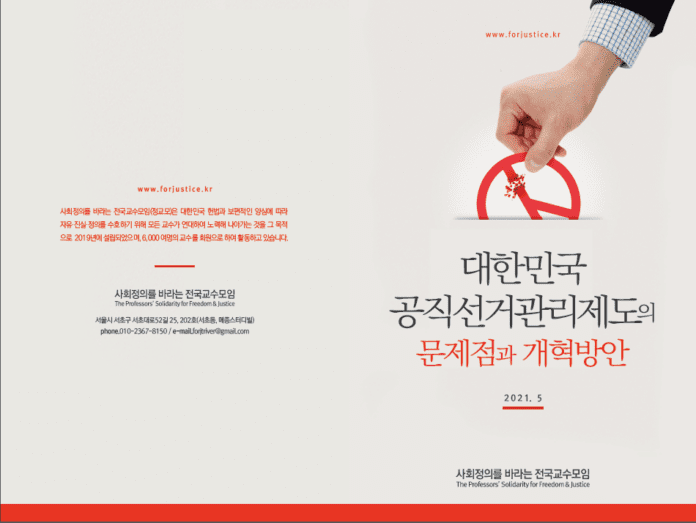Problems with the Republic of Korea’s public official election management system and ways to reform it
Professors’ Solidarity for Freedom and Justice (PFJ)
Table of contents
I. Introduction
II. Problems with the early voting and the electronic counting system and ways to reform it
III. Problems with the election management and procedure and ways to reform it
IV. Problems with the post-election verification and ways to reform it
V. New legislation and proposal for systematic improvement
VI. Summary and conclusion
I. Introduction
Since the introduction of the early voting system and the electronic counting system, widespread, substantive, and continuous allegations of election fraud have been raised in South Korea. In particular, nearly half of the constituencies of the 2020 April general election faced legal challenges, but their trials and ruling have been delayed indefinitely for more than a year, which is far beyond the 180-day deadline for handling election lawsuits. Lawsuits challenging the election results and calling for invalidation have been filed in from a wide range of constituencies across the country. Even though election-related lawsuits should be dealt with within 180 days of the election, the deadline already has passed. This itself means that the public’s trust in the integrity of the electoral democracy of the Republic of Korea has been broken.
– In short, confidence in election administration has collapsed since the April 15 general election. Suspicions of election fraud itself are also a problem, but relying on public opinion instead of transparently and actively resolving these suspicions is also a serious problem. One could even say the reason for the existence of the National Election Commission (NEC) has disappeared.
This situation is not just a matter of the operation and management of the electoral system. It can lead to a national crisis in which the systematic legitimacy of liberal democracy, the unity of the democratic republic, and the essence of the sovereign rights of the people are undermined. The current suspicion of election fraud in South Korean society means that it is not just a matter of the operation and management of the Public Official Election Act and the NEC’s regulations. It means that the following key issues should be studied and that improvements, including the fundamental abolishment of the early voting system and the electronic counting system are needed.


